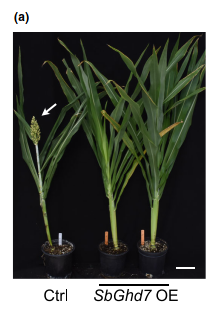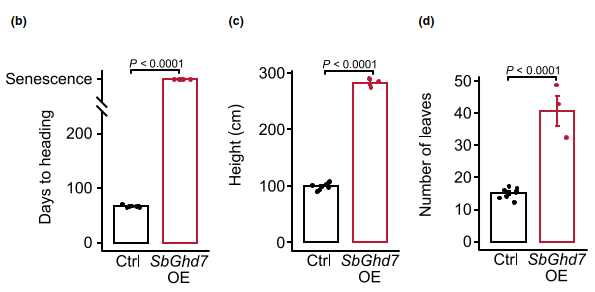BACKGROUND
The biofuel industry is currently encountering significant challenges in addressing the increasing energy needs of the future. Sorghum, a remarkably versatile crop utilized for food, forage, fiber, and biofuels, distinguishes itself with its high biomass yield and minimal input requirements. As the leading producer and exporter of sorghum, the United States acknowledges the potential of this crop, as evidenced by its designation as a preferred bioenergy crop by the USDA and DOE. Despite improvements in bioconversion efficiency, the primary hurdle remains ensuring an adequate biomass yield to meet the demands of biofuel production.
Facing the challenge of biomass yield is essential, especially as the Department of Energy's "billion-ton" study forecasts that biomass production must double to fulfill future bioenergy requirements without compromising food crop production. Furthermore, the environmental risk of transgene flow into wild relatives, such as Johnson grass, presents significant obstacles to the commercialization of genetically modified sorghum. Resolving these issues is critical for advancing the biofuel industry and securing a sustainable energy future.
SUMMARY OF TECHNOLOGY
A team of researchers at OSU has devised an innovative solution to significantly increase biomass yield in sorghum, a crucial bioenergy crop. Through the overexpression of the SbGhd7 gene using the maize Ubiquitin promoter, they have been able to produce transgenic sorghum plants that do not flower, resulting in a substantial increase in vegetative biomass. This breakthrough not only has the potential to double biomass yield in comparison to non-transgenic controls, but it also eliminates the possibility of transgene escape into wild relatives. This advancement effectively tackles key challenges in bioenergy production, providing a sustainable and efficient approach to meeting future biofuel needs.



POTENTIAL AREAS OF APPLICATION
- As feedstock for bioenergy and other biomaterials.
- Developing other related bioenergy crops that prevent gene flow processes from transgenic species to wild relatives.
MAIN ADVANTAGES
- The biomass yield can be doubled without affecting any wild relative species of sorghum.
- This novel technology is not present in any existing sorghum variety.
STAGE OF DEVELOPMENT